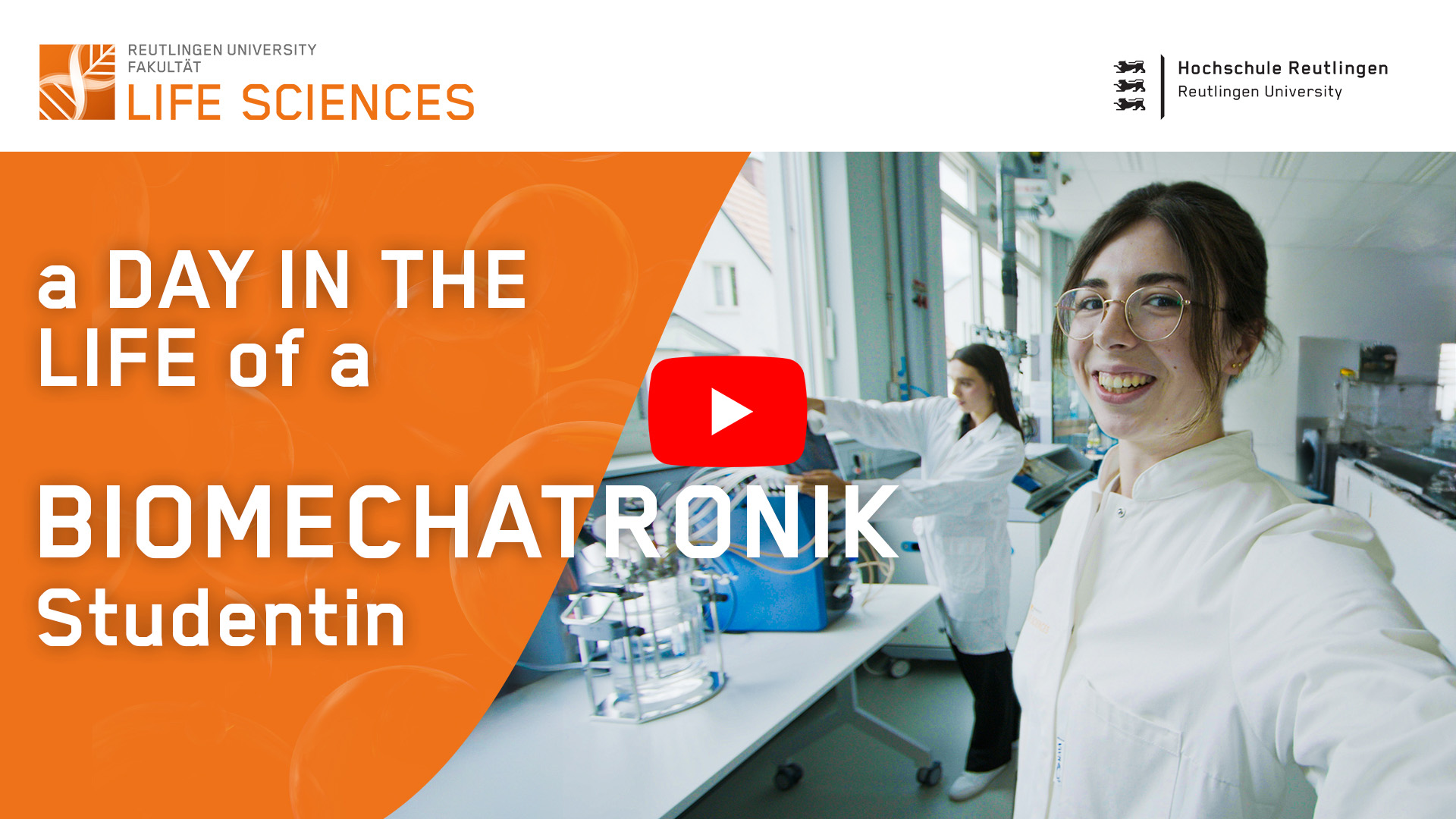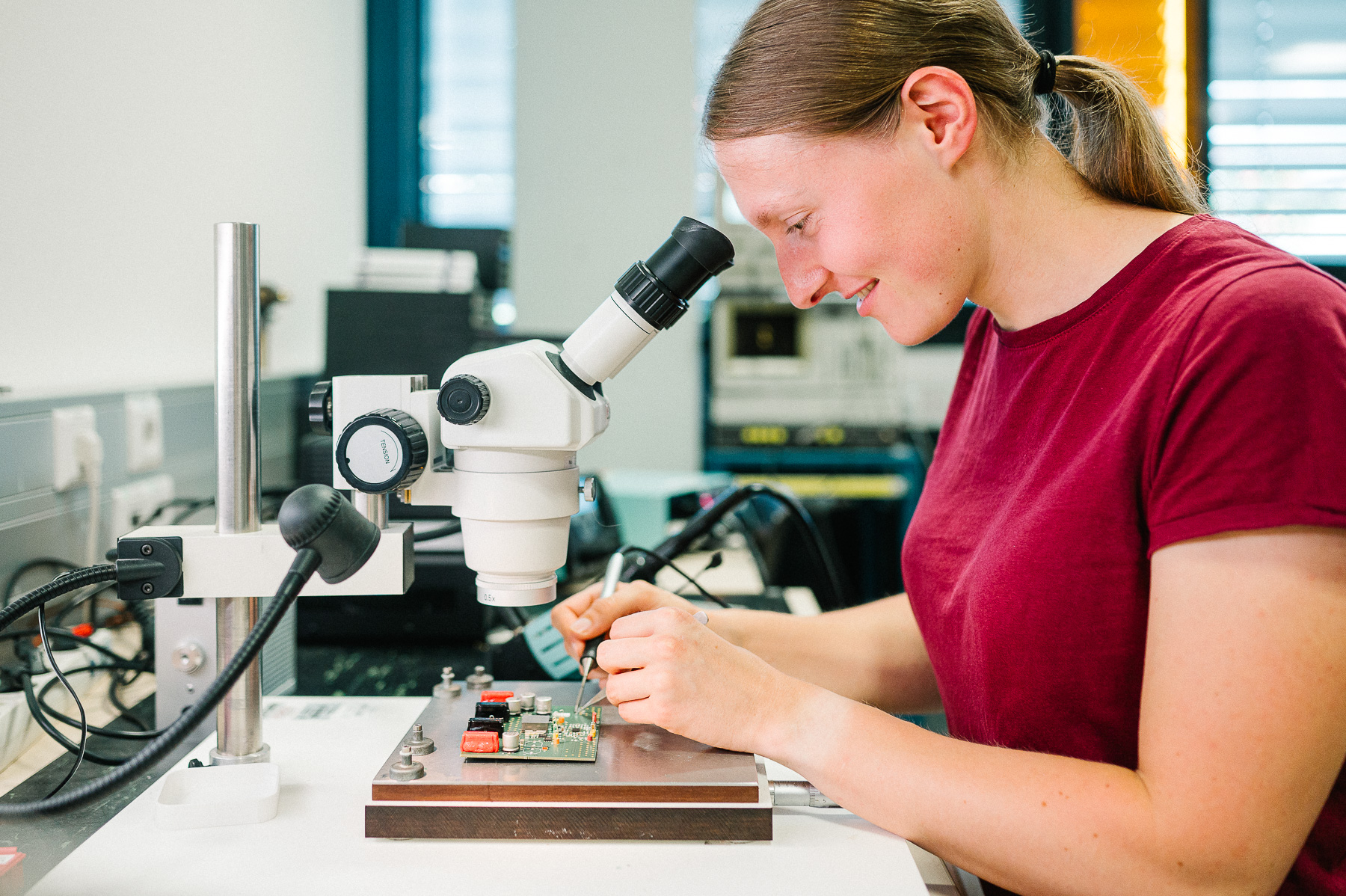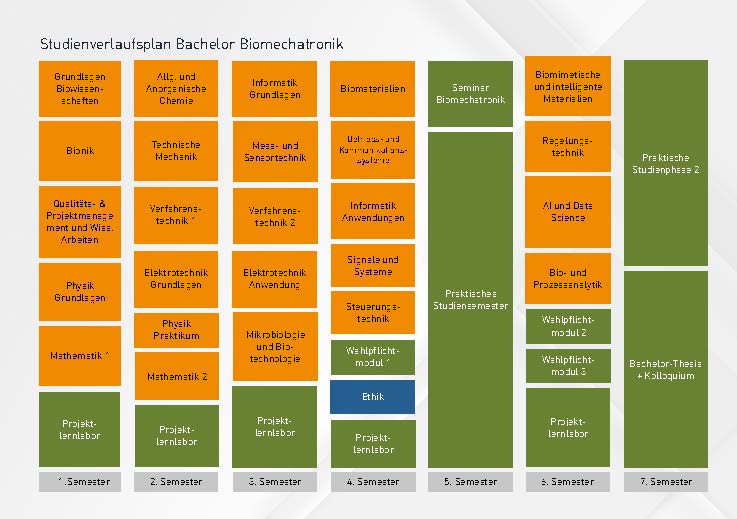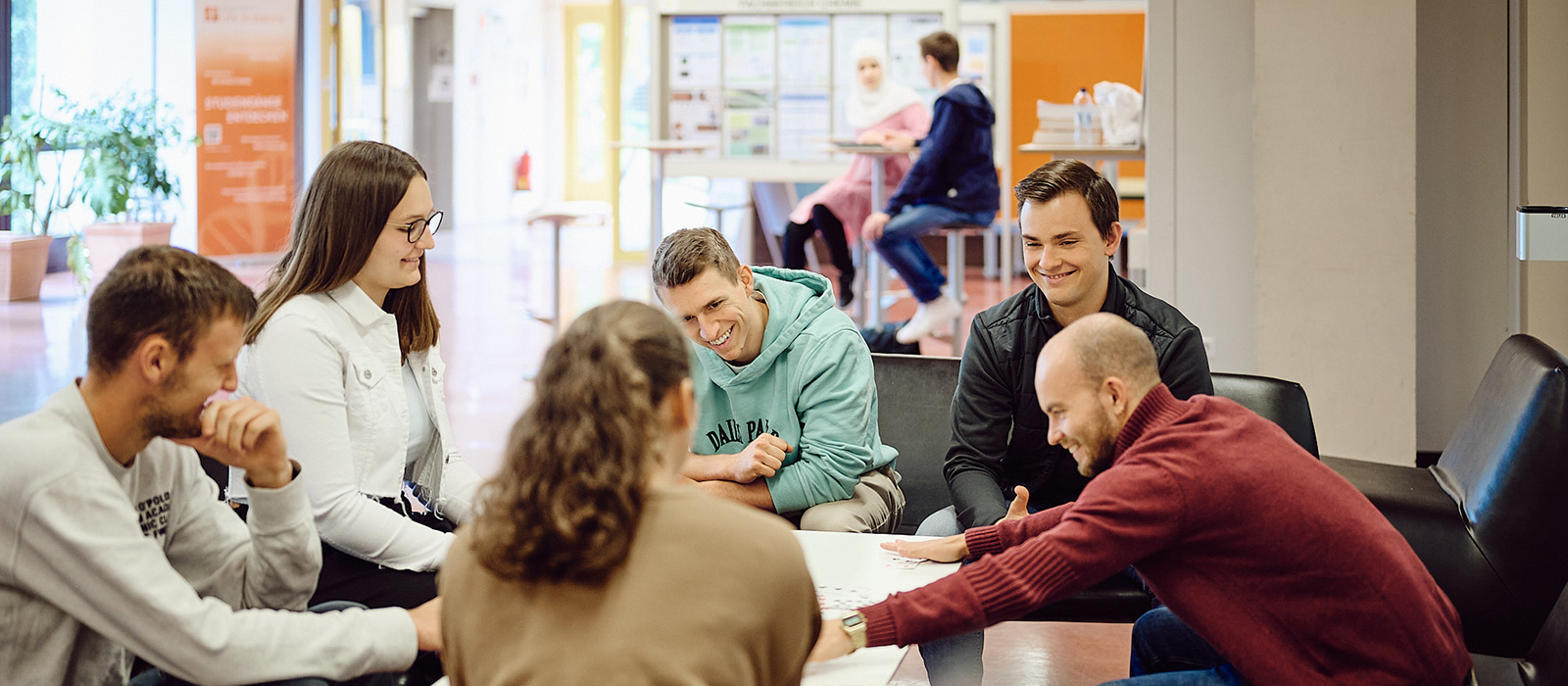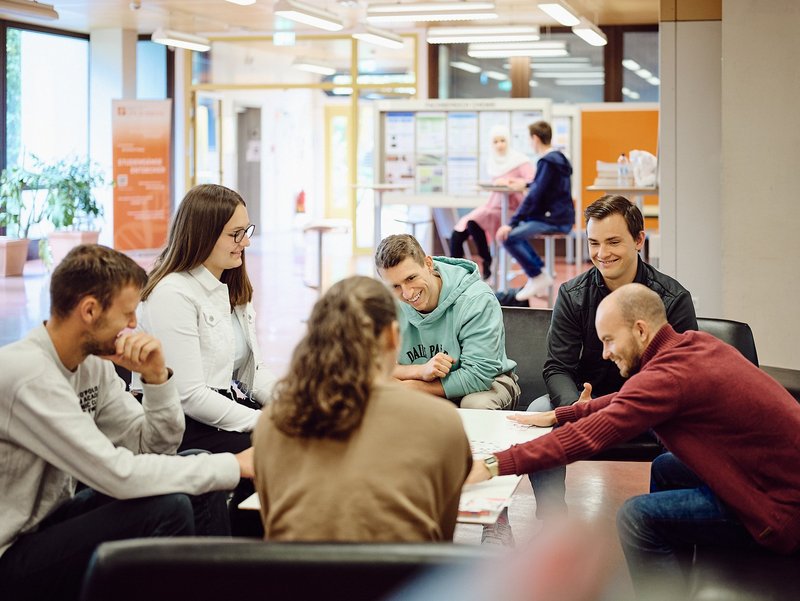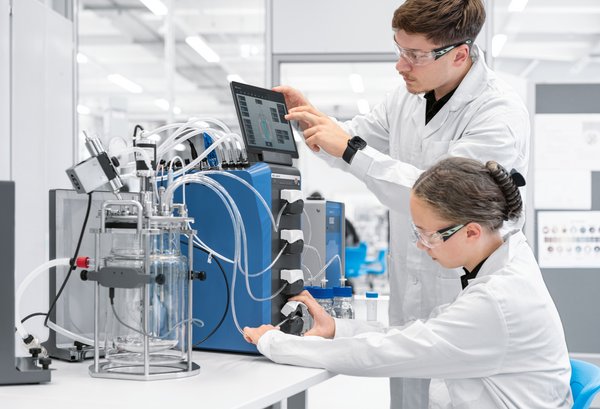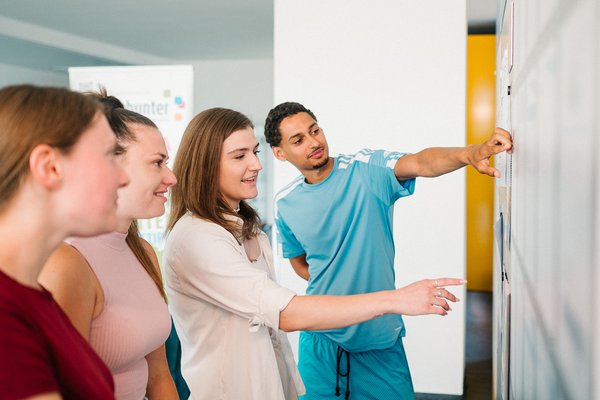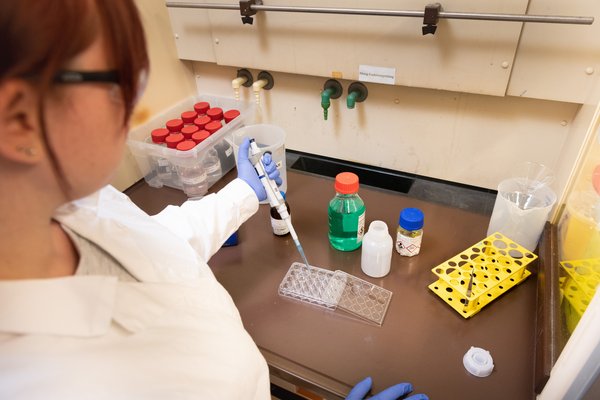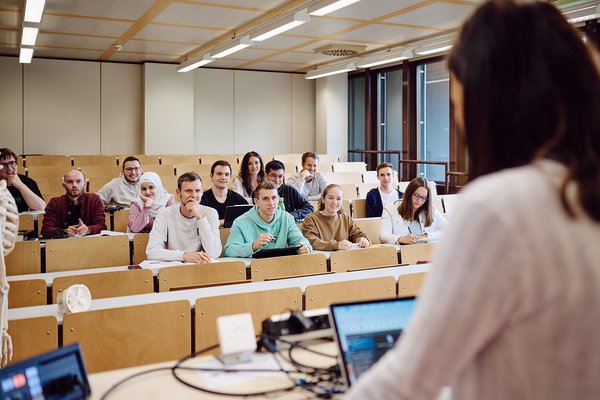Interdisciplinary and practice-oriented
Scientific work in the project learning lab - joint projects from different disciplinesVersatile and innovative
Aspects of biomedical engineering and biomechanics, robotics, artificial intelligence and process engineeringForward-looking and effective
Fit to develop innovative technologies and processes
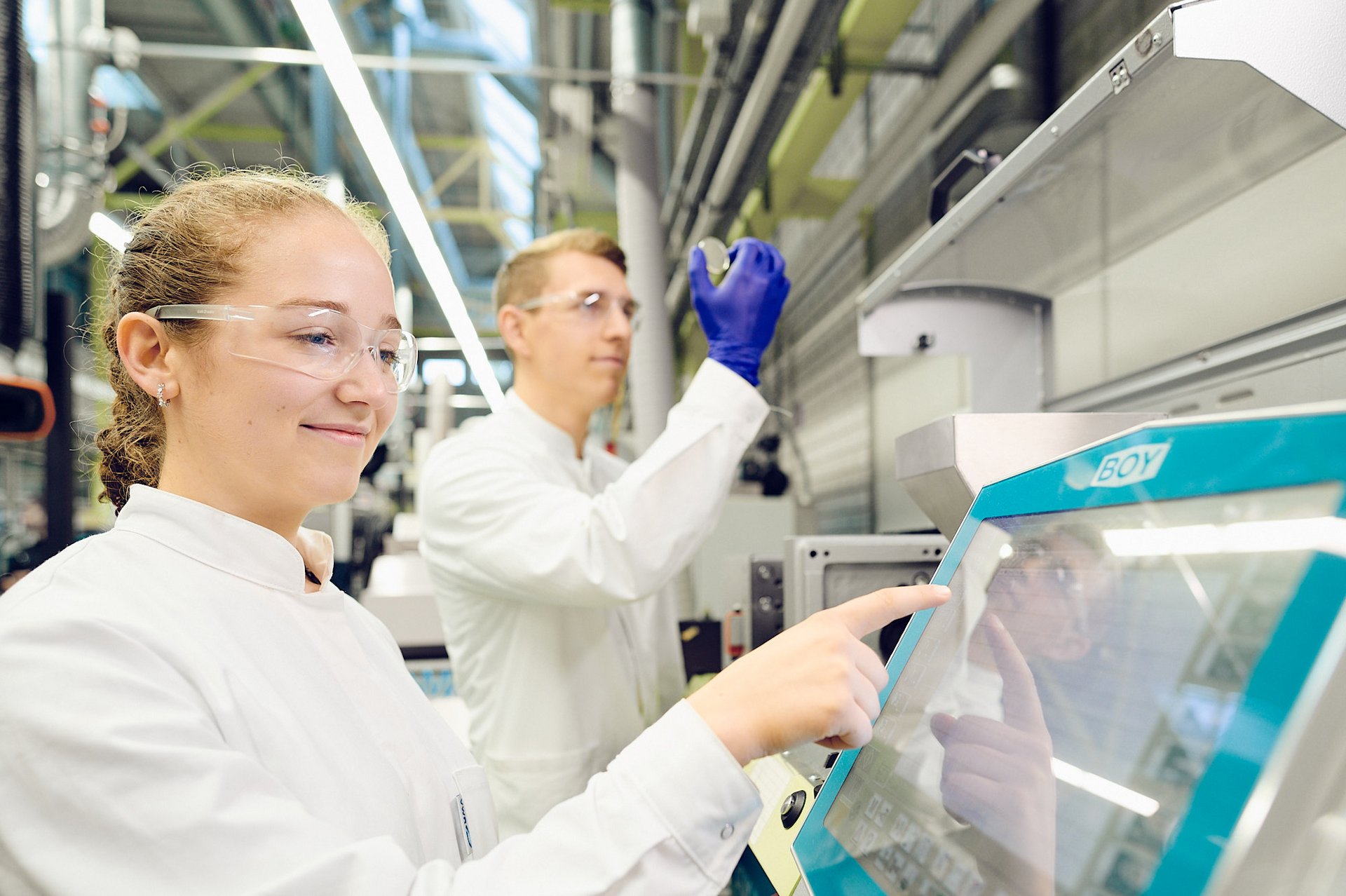
Teamwork right from the start
You will learn everything you need for your career in the interdisciplinary project learning lab. The focus here is on a holistic view of the course content, which promotes your understanding of complex technical systems and trains problem-orientated learning and critical reflection.
Your questions - our answers
Biomechatronics systematically combines biological and technical disciplines. While mechatronics combines classical mechanics, electronics and computer science and biomedical sciences primarily deal with biological and medical principles, the focus of biomechatronics is on actively linking biological processes with control and regulation technology. The aim is to influence or use biological systems in a targeted technical manner - e.g. in personalised medicine or bioprocess control in industry and environmental technology.
A classic example of a biological regulation and control process is the production of beer - in other words, the art of brewing. Here, temperature, pH value, oxygen supply and nutrient availability must be precisely controlled during fermentation. Modern breweries are increasingly relying on automated, sensor-based systems - a typical application for biomechatronics.
Other practical examples include
- Bioreactors in pharmaceutical production
- Lab-on-a-chip systems for medical diagnostics
- Automated plant or animal observation systems
- Bionic sensors, such as the e-nose
- Neurotechnology and brain-computer interfaces
This diversity shows: Biomechatronics is a key degree programme for many future fields.
Thanks to their interdisciplinary training, graduates are in demand in many sectors:
- Development and optimisation of biotechnological production processes
- Automation of biological and pharmaceutical processes
- Application of mechatronic systems in medical diagnostics and therapy
- Entry into research and development (e.g. biorobotics, biosensor technology, neurotechnology)
The successful completion of a Bachelor of Engineering in Biomechatronics entitles you to apply for a Master's programme afterwards. It is a good basis for:
- Master's programmes at Reutlingen University, such as Biomedical Sciences (School of Life Sciences), Mechatronics (School of Engineering), Digital Industrial Management and Engineering (School of Sustainability and Technology), Environmental Protection (School of Life Sciences).
- Further degree programmes at other colleges and universities such as Biomechatronics, Biotechnology, Medical Technology, Robotics or Systems Engineering
We co-operate with leading companies and research institutes, for example
- Festo - automation technology for biotechnological processes
- Regional medical technology and biotechnology companies
With us, it's all about getting involved right from the start - and not just after three semesters of theory!
Our project learning lab is a real highlight - you won't find this on any other degree programme. From day one, you work in a team on a real project, accompanied by several professors and dedicated members of staff. You learn by trying things out, receive guidance and work together with others - this is how studying makes sense from the very beginning.
In the first project learning lab, which takes place in the winter semester, you will immerse yourself directly in the movement analysis of biological organisms. Together we will cultivate small brine shrimp, for example, observe their behaviour and analyse their movements using modern video analysis tools. You will receive everything you need: comprehensive tutorials, supervised exercises, software - and continuous support from your project team, consisting of Professor Brecht, Professor Raudzis and a dedicated team of assistants.
This practical, team-oriented learning from day one clearly sets us apart from other degree programmes - and makes biomechatronics a particularly lively and motivating course.
If you don't get a place on the Biomechatronics degree programme at the first attempt, there are good alternatives. You can apply for one of our related degree programmes - such as Biomedical Sciences (admission restricted), Chemistry & Sustainable Processes (admission-free) or Mechatronics (admission-free).
It is usually possible to transfer to the Biomechatronics degree programme after the first or second semester. Please contact the degree programme coordinator in good time - we will be happy to help you plan your studies.
Biomechatronics enables you to control, regulate and utilise complex biological systems using modern technical means. This is crucial for
- the production of personalised medicine
- process optimisation in the pharmaceutical industry
- new technologies in the energy sector, e.g. biologically inspired fuel cells or CO₂ fixation systems
Combining nature and technology responsibly - this is one of the major tasks of the coming years.
Targeted technical interventions in biological systems - so-called ‘technical fixes’ - offer solutions to key challenges in medicine, industry and the environment. They make it possible to improve or stabilise biological processes in a targeted manner. In this way, they strengthen our society's resilience to growing global pressures such as climate change, technological upheaval and geopolitical crises. Many socially relevant innovations today are based on the precise control of biological processes. Biomechatronics provides the tools to remain capable of acting and future-orientated under such conditions and to develop solutions for key challenges:
- sustainable production through biological-technical process chains
- efficient medical diagnostics and therapy through integrated sensors and actuators
- environmental protection and energy transition through bio-inspired systems and new materials
